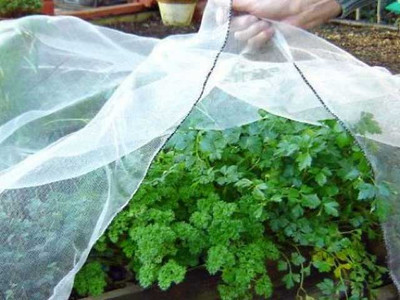The Pros and Cons of Organic Pesticides
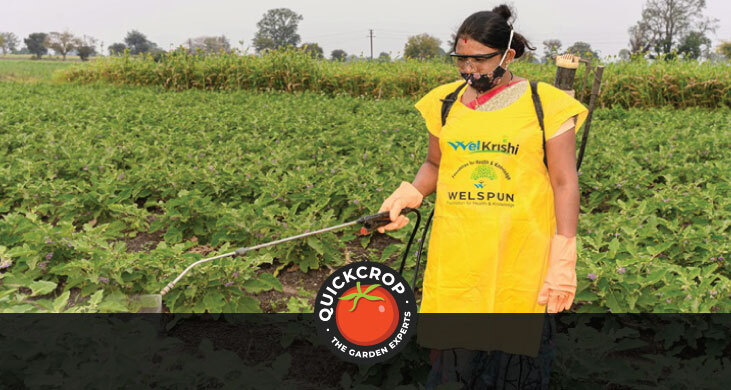
At first glance it would seem like a no-brainer that organic pesticides are preferable to chemical pesticides; at least to a gardener who wishes to do the least harm while still protecting their crops.
However, the terminology can be deceptive. Organic pesticides will still often contain naturally occuring chemicals (which can be toxic in themselves), so it is more accurate to see them as alternatives to ‘synthetic’ or man-made pesticides.
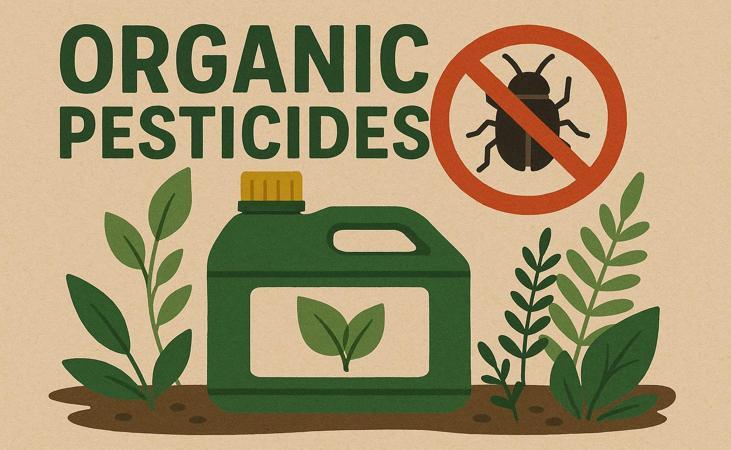
The point is that we are looking for some kind of pest control method that does less harm to the environment, wildlife and plants themselves. The negative effects of pesticide use in the garden or in agriculture have become all-too-evident over the years, whether it’s the harm that they have done to pollinator populations or contamination of water sources.
Organic Pesticide Options
Aside from physical barriers such as crop covers, handpicking or removal, mesh, netting etc, there are a number of non-synthetic pest control products to choose from. These include garlic solution sprays, plant invigorator or foliar sprays derived from organic sources, or Diatomaceous earth.

Micromesh Bulk Roll 1.8m
View ProductGarlic Solution Sprays
Garlic has natural antibacterial, antifungal, and insect-repelling properties. When blended with water and other ingredients, garlic sprays can act as a broad-spectrum deterrent against soft-bodied insects such as aphids, whiteflies, and caterpillars.
Part of the mode of action is that it masks the scent of the plants, making them less attractive to insects. It can also irritate upon contact.
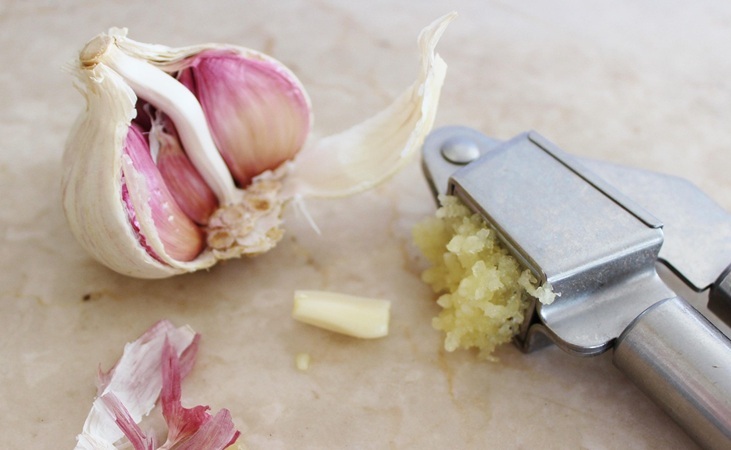
Non Synthetic Foliar Sprays or Plant Invigorator Sprays
These are liquid formulations derived from seaweed, compost tea, or other plant-based extracts. They are typically sprayed directly onto plant foliage and used at regular intervals.
In a lot of cases how these products ‘work’ can be a bit vague, but the pest deterrent factor is often linked to their ability to strengthen the plant’s natural defenses, for example by supplying micronutrients.

Ecofective Bug Control 1 Litre
View ProductSome solutions also contain natural soaps or oils which can suffocate mites, aphids, or scale insects. Indeed, soap is commonly used as a main ingredient in homemade pest sprays. Some other ingredients added to DIY sprays include chamomile or vinegar.
Diatomaceous Earth
A fine powder made from fossilized aquatic organisms, diatomaceous earth works a little differently to your typical pesticide. When insects crawl over the material, the sharp microscopic particles pierce their exoskeletons, causing them to eventually dehydrate and die.
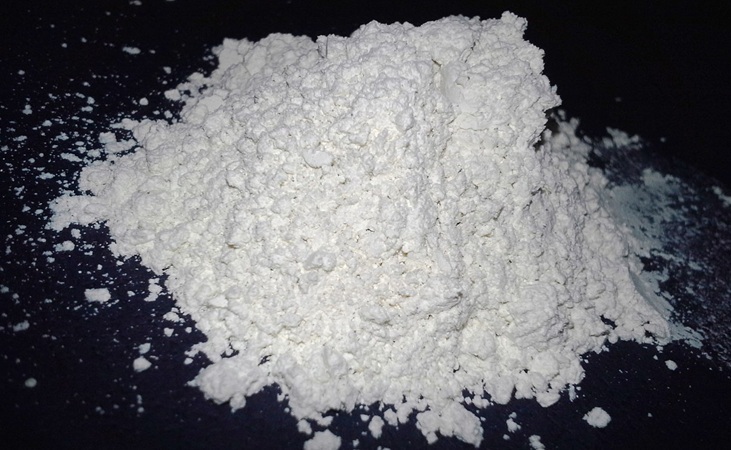
The substance can be especially effective against crawling insects like ants and beetles. It's important to apply it in dry conditions, as moisture can reduce its effectiveness.
What are the Advantages and Disadvantages of Organic Pesticides?
It’s necessary to generalise when talking about the pros and cons of organic pest control, as there are all kinds of products out there making all kinds of claims. So imagine the phrase ‘in general’ being used before most of the info that follows (rather than me having to type it over and over again!).

Garlic Wonder Pest Spray Concentrate 500ml
View ProductEffects on the Ecosystem
Even if you use synthetic pesticides in a targeted manner, the effects can ripple outwards and affect wildlife. Chemical pest control products tend not to discriminate, killing off beneficial insects as well as those we find troublesome. They can drastically reduce insect populations, which in turn dries up a food source for birds and small mammals.
Pesticide residue can run off into ponds, rivers or other water sources, poisoning fish and other aquatic life. They can also be absorbed into the soil, potentially affecting crops.
Using chemical pest control in your garden can truly disrupt the self-balancing natural ecosystem, meaning that you are dooming yourself to a constant cycle of short-term emergency ‘control’ measures.
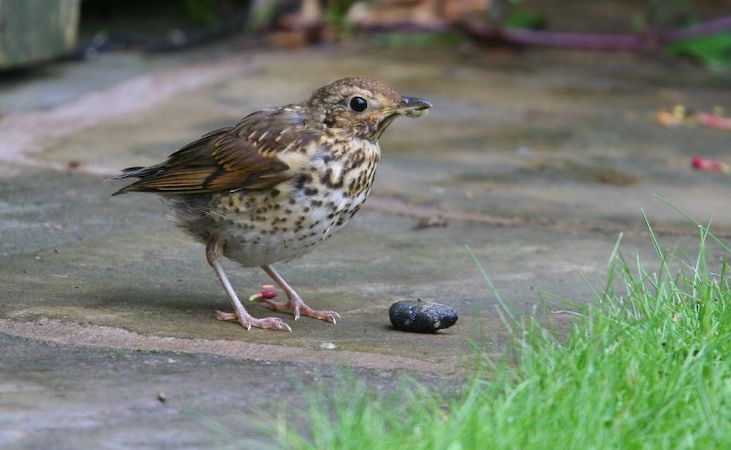
Pesticides that are derived from natural or organic sources tend to be less destructive, however. They aren’t as harsh a measure, and are more designed for repeated usage or for prevention.
Because their ingredients are mostly natural, these products break down quicker and don’t tend to leave residues behind.

Safety
Family pets and even children can be at risk from slug pellets or from spray residues. Human health is a concern as well, whether it’s from exposure to synthetic chemicals when working with sprays etc or from residues on the fruit or vegetables that we eat.
Organic pesticides are typically regarded to be safer for use around pets and children, but it’s always best to check the label and be sure.
Efficiency
There’s no getting around it: chemical pesticides are, generally, more effective when it comes to halting a ‘pest’ problem in its tracks - in the same way that a nuclear bomb is probably a more effective way of winning a war than sending in ground troops!
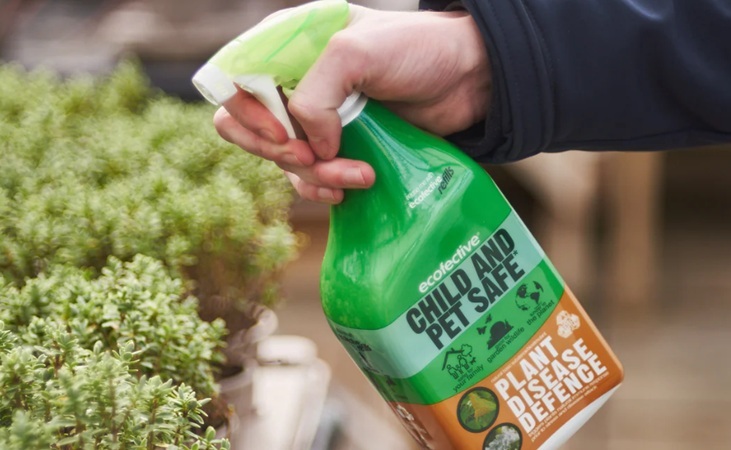
Of course, that doesn’t make it right. The idea is that when we use organic pest control products there is a trade off between brute efficiency on the one hand and not doing overall harm to the ecosystem on the other.
Organic pest control sprays are less ‘potent’, and will often need regular or repeated applications for best results. It’s also common for them to be more effective against larvae or very small insects (such as thrips) than they are against adult insects.
They are also better used at the first signs of infestation - or as a preventative measure - than in the event of a severe insect overpopulation.
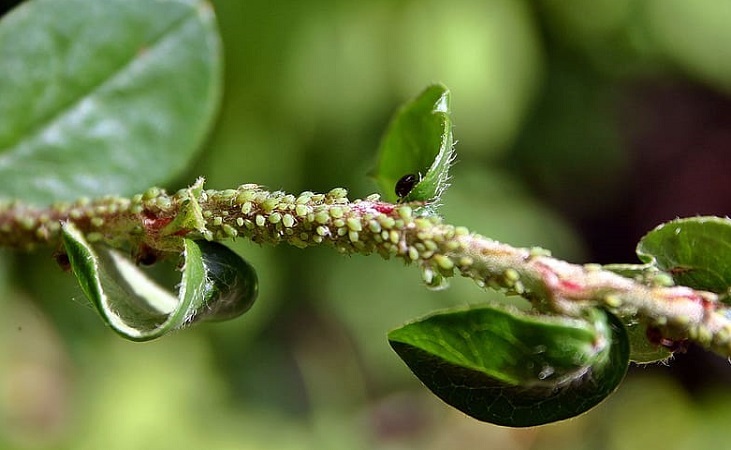
Claims
It’s best to double check the claims of any organic pesticides, as they can sometimes contain harmful ingredients despite claims to the contrary. Research the product and study the label to ensure that it is non-toxic, as well as making sure that you are applying the product conscientiously.
It’s also worth bearing in mind that if something is labelled organic or non-toxic, that doesn’t necessarily mean you should go around spraying or applying it with abandon. Natural ingredients can sometimes be harmful in their own way.
After all, there are many herbs or wildflowers that can be toxic to cats, dogs or horses when ingested. And you can’t get more natural or organic than a plant, can you?
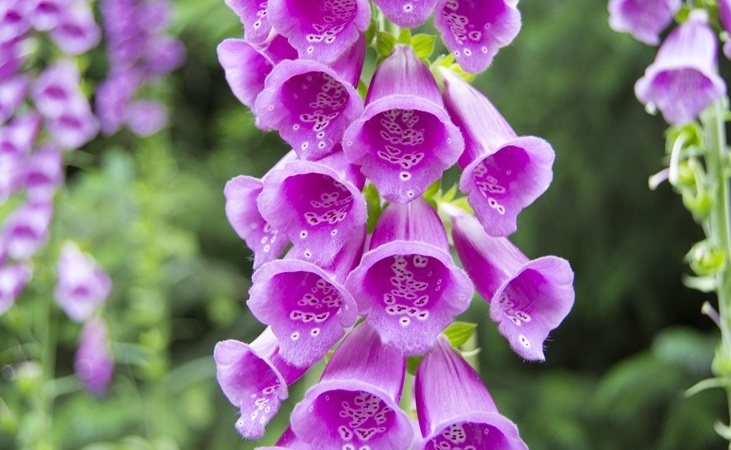
As an example of where things get complicated, you will often see neem oil recommended as an organic pest control alternative, but it can be very toxic in large quantities and harmful to bees. Indeed neem oil is forbidden for pesticide usage in the UK.
So in conclusion: a) always do some due diligence, b) read the product label and instructions in detail, c) aim to prevent rather than cure, and d) use any pest control method as a last resort.


